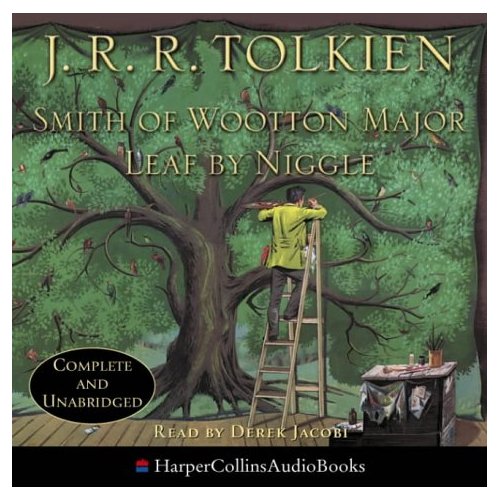| Leaf by Niggle
and the Allegorical Impulse |
| "I was going to advert to it myself, as
part apologia, part confession--I need say no more. Except that that story
was the only thing I have ever done which cost me absolutely no pains at
all. Usually I compose only with great difficulty and endless rewriting. I
woke up one morning (more than 2 years ago) with that odd thing virtually
complete in my head. I am not aware of ever 'thinking' of the story or
composing it in the ordinary sense." --Letter to Stanley Unwin, ca. 18 March 1945 "Looking at it myself now from a
distance I should say that, in addition to my tree-love, . . . it arose
from my own preoccupation with the Lord of the Rings, the knowledge
that it would be finished in great detail or not at all, and fear (near
certainty) that it would be 'not at all.' The war had arisen to darken all
horizons. But no such analysis are a complete explanation of a short
story." "It is not really or properly an
'allegory' so much as 'mythical'. For Niggle is meant to be a real
mixed-quality person and not an 'allegory' of any single vice or
virtue. Of course some elements are explicable in biographical terms (so
obsessively interesting to modern critics that they often value a piece of
'literature' solely in so far as it reveals the author, and especially if
that is in a discreditable light.)" Tom Shippey has argued in J.R.R. Tolkien Author of the Century that Leaf by Niggle is really best understood as an allegory of Tolkien's own "niggling" impulse, a scholar who revises too much to publish much of his work, a writer who revises so much his work was almost not published and which generated the massive legendarium of the History of Middle-Earth. Shippey argues that Niggle and Parish represent two sides of Tolkien--the writer and scholar versus the practical person of daily life, bound by academic and familial duties. Tolkien himself seems to both admit to an autobiographical and allegorical reading of the story only to dismiss it, stressing it is more a mythical work. Discussion Questions
|
|
"MediŠval MSS are not
(in my not very extensive experience) good on trees. I have among my
'papers' more than one version of a mythical 'tree', which crops up
regularly at those times when I feel driven to pattern-designing. They are
elaborated and coloured and more suitable for embroidery than printing;
and the tree bears besides various shapes of leaves many flowers small and
large signifying poems and major legends." Thought Experiment Look at the cover from an audio book version of Leaf by Niggle. Does the cover do justice to Niggle's tree? Did you imagine it differently? Are their elements of the story that do not easily translate into a visual medium despite its metaphor/symbol of painting? Why or why not? |
|
